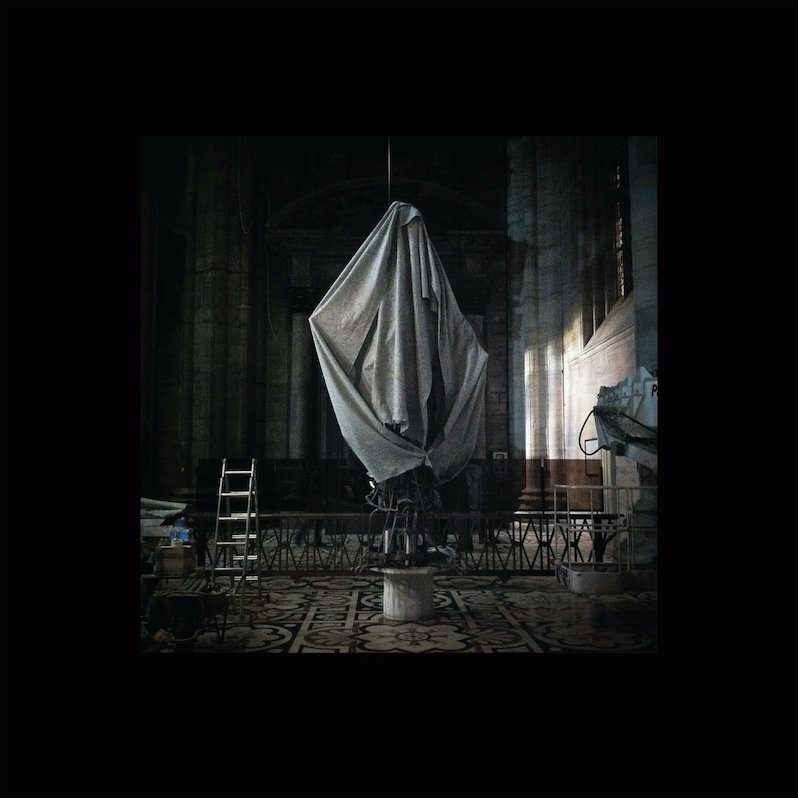Tim Hecker : Virgins

No artist in the past decade has manipulated and molded noise into such breathtaking and poignant shapes as Montreal producer Tim Hecker. Yet, Hecker is not a noise artist—not as it’s commonly understood, anyhow. Noise to Tim Hecker is just one instrument in a deep quiver, a necessary component to the darkly moving and abstract landscapes that unfold slowly within his ambient compositions. The difference is in how it’s used; a proper noise generally finds cacophony to be an end in itself, where for Hecker, it’s a means of tapping into something greater. Static and distortion provided the almost shoegaze-like waves of euphoria and darkness that haunted 2006’s Harmony In Ultraviolet, whereas the sound of decay formed the basis of 2011’s Ravedeath 1972, an album inspired by the world’s increasing mass of digital garbage and an annual MIT ritual of pushing a piano off a roof.
Surveying Hecker’s work over the past six or seven years, though, it seems he’s taken the use of noise in ambient music to its logical peak. It’s not hard to imagine him once again finding new life in the breathtaking disintegration of Ravedeath, though Hecker has never been an artist to remain still or stagnant. And while much of his work sounds of a piece, each of his recordings stands alone conceptually, from the oceanic sounds of Radio Amor to the dreamy cartography of An Imaginary Country. With Hecker’s continuing pursuit of affecting, conceptually bound works comes the arrival of Virgins, an album loosely inspired by ideas of religion and spirituality, and sonically much lighter on one key aspect: Noise.
Maybe it’s best to rephrase that—Virgins is a chaotic, sometimes cacophonous album, but it’s also Hecker’s most spacious in a long time, siphoning out much of the distortion and static in favor of the eerie intensity of organic sounds. Piano, synthesizers and woodwinds form the basis of most of its tracks, and the discordantly fluid manner in which they come together is stunningly suspenseful. In “Virginal II,” Hecker begins with piano, its eerie minor-key melody unearthing ghosts and haunting dreams, before a new sequence of other, almost unidentifiable instruments come in, only for Hecker to close out the song with repeating drones of synthesizer, stripping away the acoustic sounds entirely. It’s a gorgeously startling evolution, made all the more curiously unsettling through natural, spacious sounds.
If Virgins is Hecker’s most spacious album in years, though, that doesn’t stand in the way of being his most awe-inspiringly massive or chilling. Tim Hecker’s music has always been powerful, but it’s never seemed quite so ominous. The ways in which it transitions from stark moments of eerie calm into sections of overwhelming intensity comes at the listener like a storm system. Virgins feels much like a force of nature, and a quite intimidating one at that. The opening “Prism,” for instance, blows in like gradually accelerating winds, its cut-and-paste blend of dense drones and revving pitch shifts presenting an exercise in growing ferocity. It doesn’t explode, it just swells and swells, gradually consuming all of the air until there’s none left. On “Live Room,” however, an already terrifying clatter of piano keys gives way to violent stabs and booms, as if the music is turning in on itself, engaging in real-time violence. Closer “Stag Variation” is perhaps the most unsettling — though that could change from song to song — as its disorienting pitch bends and synth squeals offer one of the most eerily tense things Hecker’s ever recorded, yet paradoxically one of the most beautiful.
On the album’s most serene moments, like the gentle “Black Refraction” or the ethereally droning “Amp, Drugs, Harmonium,” there remains a sense of danger that lies beneath the relatively calm arrangements. They provide a reminder that the huge moments of all-encompassing power will return — and they do, in varying but consistently breathtaking intensity. The best course of action is to find a secure location, and observe the incredible, destructive beauty as it unfolds.
Label: Kranky
Year: 2013
Similar Albums:
Jeff Terich is the founder and editor of Treble. He's been writing about music for 20 years and has been published at American Songwriter, Bandcamp Daily, Reverb, Spin, Stereogum, uDiscoverMusic, VinylMePlease and some others that he's forgetting right now. He's still not tired of it.




